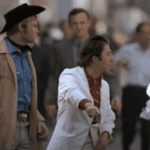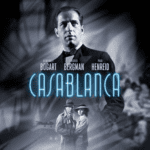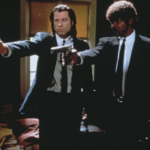Released in 1987, the film Wall Street, directed by Oliver Stone, stands as a significant narrative within the landscape of American cinema, reflecting the zeitgeist of the era. Set against the backdrop of the bustling financial district of New York City, the film delves into the moral quandaries faced by those entrenched in the world of high-stakes finance. At its core, Wall Street examines the ethos of capitalism, ambition, and the consequences of unchecked greed. The portrayal of the ruthless trader Gordon Gekko, played by Michael Douglas, encapsulates this exploration, becoming an iconic representation of the financial world during the late 20th century.
Central to Gekko’s character is the infamous quote, “Greed is good,” which not only serves as his mantra but also crystallizes the complex relationship between morality and business. This declaration challenges the conventional perception of greed, presenting it as a catalyst for innovation and economic growth. Within the film, Gekko argues that greed drives progress and wealth accumulation, positioning it as a vital force in the capitalist machine. The quote quickly transcended the film, igniting debates in popular culture and economic discussions that persist today.
The quote Greed is Good is another famous movie quote that is quoted incorrectly. It is a shortened version of the actual quote which was “Greed, for lack of a better word, is good.”
The impact of Gekko’s statement resonates beyond its context within the film, becoming a symbolic phrase that captures the essence of the financial excesses of the 1980s. It has sparked widespread dialogue regarding ethical conduct in business, the role of ambition in personal and corporate success, and the ramifications of prioritizing profit over principle. As a result, Wall Street has left an indelible mark on societal views surrounding wealth and moral responsibility, making it a focal point for analyzing the seductive allure of greed.
Meet Gordon Gekko: The Epitome of Corporate Greed
Gordon Gekko, a pivotal character from the acclaimed film “Wall Street,” portrayed by actor Michael Douglas, serves as an iconic symbol of corporate greed and excess in American capitalism. His character is designed as a ruthless corporate raider, embodying the ethos of 1980s financial culture where profit often superseded ethical considerations. Gekko’s motivations are deeply rooted in his unwavering belief that greed is not only good, but essential to the functioning of a successful economy. This foundational philosophy significantly influences his actions throughout the film.
Gekko’s background reflects his rise as a self-made man, having clawed his way to the heights of finance through sheer ambition and unprincipled tactics. His unyielding drive for wealth and power showcases a personality marked by charisma and cunning intellect, making him a compelling figure in the world of finance. He seduces not only the characters surrounding him but also the audience, tempting them with the allure of financial success and the thrill of risk-taking.
Central to Gekko’s philosophy is his famous mantra “Greed is good,” which encapsulates his belief that desire for wealth drives innovation and economic growth. This maxim poses a stark contrast to the moral dilemmas faced by other characters, particularly Bud Fox, who grapples with the implications of his mentor’s beliefs. Gekko’s character traits—his arrogance, confidence, and manipulative nature—are critical in illustrating the darker side of capitalism. Michael Douglas’s performance is noteworthy, as it captures the complexity of Gekko’s character, painting him as simultaneously admirable and loathsome.
Overall, Gordon Gekko remains a vivid representation of corporate greed, challenging viewers to contemplate the ethical dimensions of ambition and the pervasive influence of monetary desire in a capitalist society.

Economic and Ethical Implications of Greed
The concept of greed in the corporate world often invokes a rich tapestry of economic theories and ethical considerations. Greed, defined as an intense and selfish desire for wealth, can stimulate competition and innovation within market economies. Classical economic theory posits that when individuals pursue their self-interests, they inadvertently contribute to the overall economic growth. This notion aligns with Adam Smith’s idea of the “invisible hand,” suggesting that individual pursuits can lead to societal benefits. In this regard, a certain level of greed may serve as a catalyst for increased productivity and the development of innovative products and services. However, this perspective is nuanced.
While greed can drive companies to enhance their offerings and reduce prices in a competitive market, it also raises ethical questions about social responsibility. The relentless pursuit of profit can lead to unethical behavior, including exploitation of labor, environmental degradation, and neglect of community welfare. Cases of corporate malfeasance often illustrate how prioritizing short-term gains over ethical considerations can have dire consequences, not only for a firm’s reputation but also for society at large. Stakeholder theory, which posits that businesses should consider the interests of all stakeholders—including employees, customers, and the community—challenges the traditional capitalist narrative that prioritizes shareholder profit exclusively.
The ramifications of extreme greed can extend beyond ethical dilemmas, impacting economic stability. Crises such as the 2008 financial collapse serve as poignant reminders of how unchecked greed can lead to ruinous decisions that affect millions. When companies prioritize profit to the detriment of long-term sustainability, they cultivate an environment rife with risk and instability. Thus, while the allure of greed persists within the corporate ethos, it carries substantial economic and ethical implications that warrant careful scrutiny.
Cultural Impact of the Quote: Legacy and Interpretation
The phrase “Greed is good,” has left an indelible mark on popular culture and societal attitudes towards capitalism. Initially intended to encapsulate the ruthless ethos of corporate America during the 1980s, it has since evolved into a profound cultural symbol. The film’s portrayal of unchecked ambition resonated with an era characterized by economic prosperity and financial deregulation, leading to a nuanced interpretation of greed as a motivator for success.
Over the years, the quote has permeated various facets of media and public discourse. It has been referenced in political debates, often evoking reactions that highlight the dichotomy between capitalism’s benefits and its potential harms. Politicians and activists have used the phrase to critique corporate influence in governance, drawing upon its provocative nature to galvanize discussions about economic inequality and ethical responsibility in business practices.
The phrase has also found its way into literature, television, and social commentary, signifying a complex relationship with American capitalism. Documentaries and news reports frequently reference “Greed is good” to illustrate the moral dilemmas faced by individuals competing in a market-driven society. As a cultural touchstone, it has sparked discussions around the implications of materialism and the ethics of wealth accumulation.
Moreover, the quote has been critiqued and embraced in diverse contexts, transforming into a phrase that signifies everything from ambition and resilience to the darker aspects of avarice and moral decay. The saying has become synonymous with the attitudes toward capitalism that dominate contemporary discussions, illustrating the tension between aspiration and ethics. Thus, its legacy continues to provoke thought and debate, ensuring its relevance in the ongoing discourse surrounding the complexities of modern capitalism.
Comparative Analysis: Greed in Other Films
Greed serves as a powerful narrative device in various films, often reflecting societal values and individual aspirations. One notable example is Martin Scorsese’s “The Wolf of Wall Street,” which illustrates the life of Jordan Belfort, a stockbroker whose insatiable hunger for wealth leads him down a path of excess and moral depravity. The film highlights the seductive nature of greed, portraying it as both a motivating force and a destructive entity. Belfort’s rise and fall encapsulate the notion that the pursuit of financial gain can overshadow ethical considerations, similar to the central themes observed in “Wall Street.”
Another compelling film in this regard is “American Psycho,” directed by Mary Harron. The character of Patrick Bateman, a wealthy investment banker, embodies the apathy and superficiality often associated with unchecked greed. The film critiques capitalism by showcasing how Bateman’s obsession with material possessions and status ultimately leads to alienation and violence. In many ways, “American Psycho” complements “The Wolf of Wall Street,” as both characters navigate through a landscape where wealth is admired and humanity is compromised. The lens of greed in this film is sharply critical, suggesting that the desire for more can consume one’s identity and morals.
Furthermore, films like “The Great Gatsby,” based on F. Scott Fitzgerald’s novel, present greed in a more romanticized fashion. Jay Gatsby’s pursuit of wealth and status is rooted in his desire for love and acceptance. However, his obsession with achieving the American Dream ultimately brings about his downfall. Each of these films offers a unique interpretation of greed, extending beyond mere financial ambition to explore the psychological and social ramifications of striving for unattainable desires. As a thematic element, greed reveals a complex interplay between aspiration and avarice that continues to resonate in contemporary cinema.
The Full Greed is Good – Wall Street Movie Quote
Gordon Gekko (Michael Douglas) : “Well, ladies and gentlemen, we’re not here to indulge in fantasy, but in political and economic reality… I am not a destroyer of companies.
I am a liberator of them.
The point is, ladies and gentlemen, that greed, for lack of a better word, is good.
Greed is right. Greed works. Greed clarifies, cuts through and captures the essence of the evolutionary spirit. Greed, in all of its forms — greed for life, for money, for love, knowledge — has marked the upward surge of mankind and greed, you mark my words, will not only save Teldar Paper, but that other malfunctioning corporation called the USA.
Thank you very much. Thank you very much!…”
More Movie Quotes To Inspire You
- Why So Serious? – The Dark Knight
 Introduction to The Dark Knight and The Joker Ever wondered why a movie quote haunts us even years after its release? The Dark Knight offers lines so impactful they’ve etched themselves into pop culture, with none more famous than the Joker’s taunting query, “Why so serious?” Introduction to this cinematic marvel is almost unnecessary, but… Read more: Why So Serious? – The Dark Knight
Introduction to The Dark Knight and The Joker Ever wondered why a movie quote haunts us even years after its release? The Dark Knight offers lines so impactful they’ve etched themselves into pop culture, with none more famous than the Joker’s taunting query, “Why so serious?” Introduction to this cinematic marvel is almost unnecessary, but… Read more: Why So Serious? – The Dark Knight - “I’m Walking Here, I’m Walking Here” – Midnight Cowboy
 Ever feel like the world might just run you over if you don’t stand your ground? Imagine navigating the chaotic streets of NYC in the ’60s. Sounds intense, right? Well, that’s exactly what happens in the iconic scene from Midnight Cowboy where Dustin Hoffman’s character boldly claims his turf with ‘I’m walking here!’ What’s even… Read more: “I’m Walking Here, I’m Walking Here” – Midnight Cowboy
Ever feel like the world might just run you over if you don’t stand your ground? Imagine navigating the chaotic streets of NYC in the ’60s. Sounds intense, right? Well, that’s exactly what happens in the iconic scene from Midnight Cowboy where Dustin Hoffman’s character boldly claims his turf with ‘I’m walking here!’ What’s even… Read more: “I’m Walking Here, I’m Walking Here” – Midnight Cowboy - “I Love the Smell of Napalm in the Morning” – Apocalypse Now
 Imagine waking up at dawn, surrounded by thick jungle, the air heavy with tension. Then, boom! The unmistakable scent of sweeping devastation—napalm. It’s chaotic, surreal, and strangely, some say it’s beautiful. Sounds wild, right? That’s war in Apocalypse Now, friends. Ready to dive into the psyche behind one of cinema’s most enduring lines? It’s more… Read more: “I Love the Smell of Napalm in the Morning” – Apocalypse Now
Imagine waking up at dawn, surrounded by thick jungle, the air heavy with tension. Then, boom! The unmistakable scent of sweeping devastation—napalm. It’s chaotic, surreal, and strangely, some say it’s beautiful. Sounds wild, right? That’s war in Apocalypse Now, friends. Ready to dive into the psyche behind one of cinema’s most enduring lines? It’s more… Read more: “I Love the Smell of Napalm in the Morning” – Apocalypse Now - May The Force Be With You – Star Wars
 “May the Force Be With You” – An Iconic Star Wars Quote One of the most recognizable phrases in cinema history, “May the Force be with you,” has become synonymous with the Star Wars franchise. This simple yet powerful line encapsulates the essence of hope, guidance, and the struggle between good and evil. Recognised by The American Film Institute… Read more: May The Force Be With You – Star Wars
“May the Force Be With You” – An Iconic Star Wars Quote One of the most recognizable phrases in cinema history, “May the Force be with you,” has become synonymous with the Star Wars franchise. This simple yet powerful line encapsulates the essence of hope, guidance, and the struggle between good and evil. Recognised by The American Film Institute… Read more: May The Force Be With You – Star Wars - You Talkin’ To Me? – Taxi Driver – Robert De Niro
 Think you know movie quotes? Hold on tight because “You talkin’ to me?” might just be the most enigmatic of them all. Dive into a world where one phrase encapsulates societal angst and alienation with gripping intensity. Travis Bickle, played by the legendary Robert De Niro, interrogates not just his surroundings but his very existence.… Read more: You Talkin’ To Me? – Taxi Driver – Robert De Niro
Think you know movie quotes? Hold on tight because “You talkin’ to me?” might just be the most enigmatic of them all. Dive into a world where one phrase encapsulates societal angst and alienation with gripping intensity. Travis Bickle, played by the legendary Robert De Niro, interrogates not just his surroundings but his very existence.… Read more: You Talkin’ To Me? – Taxi Driver – Robert De Niro - “These Are Not the Droids You Are Looking For” – A Star Wars Quote
 Few movie quotes have transcended time and become as iconic as Obi-Wan Kenobi’s famous line, “These are not the droids you are looking for.” This phrase, uttered in Star Wars: Episode IV – A New Hope (1977), has cemented itself in pop culture history. Beyond its significance in the movie, the line has evolved into a metaphor for persuasion,… Read more: “These Are Not the Droids You Are Looking For” – A Star Wars Quote
Few movie quotes have transcended time and become as iconic as Obi-Wan Kenobi’s famous line, “These are not the droids you are looking for.” This phrase, uttered in Star Wars: Episode IV – A New Hope (1977), has cemented itself in pop culture history. Beyond its significance in the movie, the line has evolved into a metaphor for persuasion,… Read more: “These Are Not the Droids You Are Looking For” – A Star Wars Quote - Don’t Cross The Streams – Ghostbusters
 In the pantheon of movie quotes that have wormed their way into our collective consciousness, few have the staying power of “Don’t Cross The Streams” from the 1984 supernatural comedy classic, Ghostbusters. This seemingly innocuous phrase, uttered with deadpan seriousness by Harold Ramis’s Dr. Egon Spengler, has become more than just a line from a… Read more: Don’t Cross The Streams – Ghostbusters
In the pantheon of movie quotes that have wormed their way into our collective consciousness, few have the staying power of “Don’t Cross The Streams” from the 1984 supernatural comedy classic, Ghostbusters. This seemingly innocuous phrase, uttered with deadpan seriousness by Harold Ramis’s Dr. Egon Spengler, has become more than just a line from a… Read more: Don’t Cross The Streams – Ghostbusters - “I”m Gonna Make Him An Offer He Can’t Refuse” – The Godfather
 “I’m Gonna Make Him an Offer He Can’t Refuse” – The Godfather’s Timeless Quote and Its Cultural Legacy Few movie quotes in cinematic history have achieved the legendary status of “I’m gonna make him an offer he can’t refuse.” Uttered by Marlon Brando as Don Vito Corleone in The Godfather (1972), this line is more than just a clever… Read more: “I”m Gonna Make Him An Offer He Can’t Refuse” – The Godfather
“I’m Gonna Make Him an Offer He Can’t Refuse” – The Godfather’s Timeless Quote and Its Cultural Legacy Few movie quotes in cinematic history have achieved the legendary status of “I’m gonna make him an offer he can’t refuse.” Uttered by Marlon Brando as Don Vito Corleone in The Godfather (1972), this line is more than just a clever… Read more: “I”m Gonna Make Him An Offer He Can’t Refuse” – The Godfather - Frankly My Dear I Don’t Give A Damn – Gone With The Wind
 “Frankly, My Dear, I Don’t Give a Damn”: An Enduring Movie Quote and Its Cultural Impact Few movie quotes in cinematic history have stood the test of time like Rhett Butler’s famous line, “Frankly, my dear, I don’t give a damn,” from the 1939 classic Gone With the Wind. Delivered with cool indifference by Clark Gable in his… Read more: Frankly My Dear I Don’t Give A Damn – Gone With The Wind
“Frankly, My Dear, I Don’t Give a Damn”: An Enduring Movie Quote and Its Cultural Impact Few movie quotes in cinematic history have stood the test of time like Rhett Butler’s famous line, “Frankly, my dear, I don’t give a damn,” from the 1939 classic Gone With the Wind. Delivered with cool indifference by Clark Gable in his… Read more: Frankly My Dear I Don’t Give A Damn – Gone With The Wind - Dirty Harry – Go Ahead Make My Day – Sudden Impact
 The ‘Dirty Harry’ franchise, a cornerstone of American cinema, has captivated audiences since its inception in the early 1970s. This series primarily revolves around the resolute and gritty San Francisco police inspector, Harry Callahan, masterfully portrayed by Clint Eastwood. Callahan’s character is emblematic of a tough, no-nonsense cop wielding a .44 Magnum, known for his… Read more: Dirty Harry – Go Ahead Make My Day – Sudden Impact
The ‘Dirty Harry’ franchise, a cornerstone of American cinema, has captivated audiences since its inception in the early 1970s. This series primarily revolves around the resolute and gritty San Francisco police inspector, Harry Callahan, masterfully portrayed by Clint Eastwood. Callahan’s character is emblematic of a tough, no-nonsense cop wielding a .44 Magnum, known for his… Read more: Dirty Harry – Go Ahead Make My Day – Sudden Impact - Greed Is Good – Wall Street Movie Quote
 Released in 1987, the film Wall Street, directed by Oliver Stone, stands as a significant narrative within the landscape of American cinema, reflecting the zeitgeist of the era. Set against the backdrop of the bustling financial district of New York City, the film delves into the moral quandaries faced by those entrenched in the world… Read more: Greed Is Good – Wall Street Movie Quote
Released in 1987, the film Wall Street, directed by Oliver Stone, stands as a significant narrative within the landscape of American cinema, reflecting the zeitgeist of the era. Set against the backdrop of the bustling financial district of New York City, the film delves into the moral quandaries faced by those entrenched in the world… Read more: Greed Is Good – Wall Street Movie Quote - Casablanca Famous Movie Quotes
 Released in 1942, “Casablanca” remains one of the most critically acclaimed films in cinematic history. Directed by Michael Curtiz, the film stars iconic actors such as Humphrey Bogart and Ingrid Bergman, whose performances have captivated audiences for decades. Set against the backdrop of World War II, “Casablanca” combines elements of romance, sacrifice, and patriotism, making… Read more: Casablanca Famous Movie Quotes
Released in 1942, “Casablanca” remains one of the most critically acclaimed films in cinematic history. Directed by Michael Curtiz, the film stars iconic actors such as Humphrey Bogart and Ingrid Bergman, whose performances have captivated audiences for decades. Set against the backdrop of World War II, “Casablanca” combines elements of romance, sacrifice, and patriotism, making… Read more: Casablanca Famous Movie Quotes - Dirty Harry – Do You Feel Lucky Punk?
 The Dirty Harry film series, which began with the release of the first film in 1971, has become a significant cultural phenomenon in American cinema. Centered around the character of Harry Callahan, portrayed with remarkable intensity by Clint Eastwood, the series has captivated audiences with its exploration of complex themes such as justice, morality, and… Read more: Dirty Harry – Do You Feel Lucky Punk?
The Dirty Harry film series, which began with the release of the first film in 1971, has become a significant cultural phenomenon in American cinema. Centered around the character of Harry Callahan, portrayed with remarkable intensity by Clint Eastwood, the series has captivated audiences with its exploration of complex themes such as justice, morality, and… Read more: Dirty Harry – Do You Feel Lucky Punk? - Ezekiel 25:17 Pulp Fiction – Jules (Samuel L Jackson)
 Introduction to Pulp Fiction and Its Iconic Moments Quentin Tarantino’s film Pulp Fiction, released in 1994, is a landmark in modern cinema, renowned for its bold storytelling and unique narrative structure. The film intertwines several seemingly unrelated storylines that converge in unexpected ways, creating an intricate tapestry of characters and events that captivates audiences. Each… Read more: Ezekiel 25:17 Pulp Fiction – Jules (Samuel L Jackson)
Introduction to Pulp Fiction and Its Iconic Moments Quentin Tarantino’s film Pulp Fiction, released in 1994, is a landmark in modern cinema, renowned for its bold storytelling and unique narrative structure. The film intertwines several seemingly unrelated storylines that converge in unexpected ways, creating an intricate tapestry of characters and events that captivates audiences. Each… Read more: Ezekiel 25:17 Pulp Fiction – Jules (Samuel L Jackson) - You Can’t Handle The Truth – A Few Good Men
 A Few Good Men, a courtroom drama film, was released in 1992 and directed by Rob Reiner. The film is adapted from a play of the same name by Aaron Sorkin, who also penned the screenplay. It features a distinguished cast including Tom Cruise, Demi Moore, and Jack Nicholson, whose performances were pivotal in bringing… Read more: You Can’t Handle The Truth – A Few Good Men
A Few Good Men, a courtroom drama film, was released in 1992 and directed by Rob Reiner. The film is adapted from a play of the same name by Aaron Sorkin, who also penned the screenplay. It features a distinguished cast including Tom Cruise, Demi Moore, and Jack Nicholson, whose performances were pivotal in bringing… Read more: You Can’t Handle The Truth – A Few Good Men - Show Me The Money – Jerry Maguire
 The Origin of ‘Show Me the Money’ The phrase “Show Me The Money” originates from the 1996 film “Jerry Maguire,” directed by Cameron Crowe. Within the context of the movie, Jerry Maguire, portrayed by Tom Cruise, is a sports agent facing a career crisis. After experiencing a moral awakening, he strives to promote a more… Read more: Show Me The Money – Jerry Maguire
The Origin of ‘Show Me the Money’ The phrase “Show Me The Money” originates from the 1996 film “Jerry Maguire,” directed by Cameron Crowe. Within the context of the movie, Jerry Maguire, portrayed by Tom Cruise, is a sports agent facing a career crisis. After experiencing a moral awakening, he strives to promote a more… Read more: Show Me The Money – Jerry Maguire

















